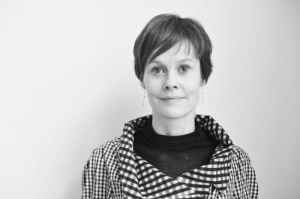
Playful Learning in Higher education – a need for new concepts
Based on the research project Playful Learning Research Extension this presentation will explore the concept of “play qualities” as a way to conceptualize play practices in higher education. The exploration of the concept will have two foci: First, play qualities are related to the acting, which means specific doings in learning processes. Second, those qualities are always qualities to somebody who are involved in the doings in learning processes. With the concept of play qualities as a way to design and understand play pedagogy within higher education, the potential of not polarize play and learning in unfruitful way is present, just as the possibility of creating a vocabulary which makes sense to the practices, which we want to design for and develop in higher education.
Reading tip Play book
Hopefully we will add material here from the presentation. Feel free to comment and discuss below!


Categories: 2021 Digital conference, Conferences
Where do you see the biggest challenge in implementing play qualities and playfulness in adult education?
LikeLike
From Helle Marie:
Thank you for the question.
In teacher education the idea of what a diciplin is, what knowledge is, and how they are related is a big challenge. Often I meet students who think that the “doing of play” is not something that is related to “real” knowledge.
The idea of play qualities challenge the idea and value of knowledge.
LikeLike
I note my first-year students are very self-conscious about playing (playing is childish), but my adult students LOVE it (yay! We can play!). I really stress the importance of play when learning with my students.
LikeLike
I guess my point is, play isn’t just for kids. We as adults, as teacher trainers, need to maintain that sense of play with the lessons we teach as well. We need to maintain healthy inner children in order to maintain contact with children (https://amyklipp.wordpress.com/2016/04/24/bridging-the-generation-gap/)
LikeLike
Do you have connections to other researchers around Europe? Meaning – how is playful learning doing outside Denmark….?
LikeLike
YES, in different design environments around the world, the interest is strong, and I am involved with people I the US, Australia, Nederlands, China, UK and so on. In Scandinavia the value of play in pedagogy and education has been important for many years.
LikeLike
I use a lot of language games with my students (as an English teacher), the adults really enjoy that. I pose that we never really stop with playing. THat gives us a safe space to practice, make mistakes, expand our zone of proximal development (https://amyklipp.wordpress.com/2017/02/15/the-zpd-not-just-for-kids/)
LikeLike
Play is part of teacher education in different countries but we need concepts yo use and to frame the situations including play.
LikeLike
In the Netherlands schools are aiming to bring playful learning back. It somehow is more appreciated than before. On the other hand it is still in full development. Not everybody is convinced that playing is learning as well.
LikeLike
Is it possible to separate “play as activity” from “play as mood”?
Is it possible to pretend play – or playful?
Because that is what students propably will do in a world of learning outcomes
LikeLiked by 1 person
I follow Henrickshttps://www.press.uillinois.edu/books/catalog/97enk4fa9780252039072.html
He is pointing to play as both action, interaction and act. I think it is fluid, and we can separate the aspects theoretically, but in practice you can move between act, action and interaction, depending on the context.
Yes, it is possible to pretend play, not meaningful nessesarily. Sometimes you can start pretending play, and it might turn in to play. I think action/act/interaction here is really important. That you design action/interaction/act, with values as open ended, driven by the participants, space for surprises, and then we will see.
LikeLiked by 1 person
I wonder what effect play produces/might/could produce on the relationship between educator/teacher and children?
LikeLike
From the chat:
Amy Klipp to Everyone (5:20 PM)
Could you please speak to the importance of play for adults as well?
Ola Henricsson to Everyone (5:21 PM)
Is not spontaneity an important aspect, quality of play? Then it is difficult to forsee the activity?
Annette Bruun-DK to Everyone (5:22 PM)
In our group we talked abut the difference between didactic activities and play, how do you see the difference
Me to Everyone (5:22 PM)
Good point Ola – the alternative students pretending to play is frightening
!
LikeLike